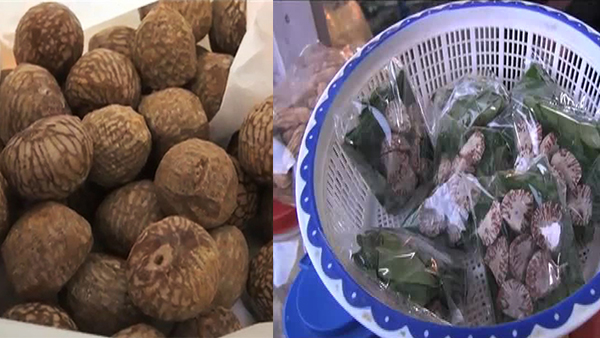 Most Bhutanese have a weakness for areca nut, popularly known as doma. It is a dessert as well as snacks although health officials discourage chewing of doma which is often linked to the cases of oral and stomach cancers in the country. And many avid consumers of doma across the country saw the price hitting new high during the nationwide lockdown. In Bumthang 80 pieces (one pon) of the peeled nut are sold at around Nu 800, which is equivalent to the price of a 25 kg imported rice. However, with the relaxation of lockdown restrictions, prices are gradually falling, yet people still have to pay a hefty amount for the stimulant.
Most Bhutanese have a weakness for areca nut, popularly known as doma. It is a dessert as well as snacks although health officials discourage chewing of doma which is often linked to the cases of oral and stomach cancers in the country. And many avid consumers of doma across the country saw the price hitting new high during the nationwide lockdown. In Bumthang 80 pieces (one pon) of the peeled nut are sold at around Nu 800, which is equivalent to the price of a 25 kg imported rice. However, with the relaxation of lockdown restrictions, prices are gradually falling, yet people still have to pay a hefty amount for the stimulant.
The current price ranges from Nu 550 to Nu 600 for 80 pieces of the nut. In Pan shops, a pack of seven pieces of the nut with betel leaves and lime costs Nu 50. Before the recent lockdown, a pack contained ten pieces.
Ugyen, a customer in Chamkhar said, “we don’t know if the price shot up from India itself or the retailers here are taking advantage of the situation but as we have to buy it somehow as we have become habitual chewers of the nut. Before the lockdown, the price for 80 pieces of the nut was around Nu 300 but now it has doubled. During the lockdown, it costs almost Nu 1,000.”
Vendors say transportation charges for goods have generally escalated after the transhipment system of goods was put in place at Phuentshogling last year.
Mushrraf Hussain, a Doma Vendor in Chamkhar said, “the price hike occurred all across the country and not just in Bumthang. During the lockdown, there was no supply at all. I managed to bring in few sacks through an essential goods-delivery van which charged me around Nu 12,000 as transportation cost. Moreover, we also have to pay Nu 50 for a pon of betel nut as tax.”
However, as movement restrictions are relaxed, the supplies are increasing.
“Supplies are becoming available now. More vehicles are coming in and the transportation charges are dropping,” he added.
Another Doma Vendor in Chamkhar said, “the market is becoming competitive again. I am selling the nuts for a cheaper rate because these are perishable goods and I need to sell them off as fast as I can. I will stop importing the nut if the competition becomes stiffer.”
Like the hike in the price of the nut, commodities have generally become more expensive in the last year or so across the country. Mechanizing the transhipment of goods in Phuentsholing might reduce the burden on consumers but for now, people keep buying goods at an inflated rate.
Kipchu, Bumthang






